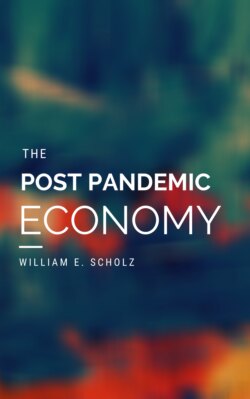Читать книгу The Post Pandemic Economy - William E. Scholz - Страница 5
На сайте Литреса книга снята с продажи.
"Post-Place" Trade
ОглавлениеAt first, "post-place" trade appears as a harbinger of the future as remote professionals conduct endless streaming video conferences, work on their computer from any location, and hire from at home or abroad based upon their applicant response to a job posting. Only half of the above connotates the full picture of "post-place" trade. Remote work as a habit is a lifestyle issue. The ability to manage labor supply across State or National boundaries is a fundamental issue for Governments at all levels.
How can we envision a labor supply in the "real" economy that is as mobile and nomadic as their digital counterparts? This is a vital issue domestically, to satisfy labor demands across sectors, but soon could be applied to trans-national labor supply. At first, one imagines the problem of immigration into the United States and its deleterious effects such as lowered wages, the theft of jobs from American workers, and the dangerous cultural impact of illegal immigration.
From a positive outlook, labor supply should be coordinated to satisfy the completion of large-scale infrastructure projects domestically or internationally. In America's case, workers could be enlisted for three-month long infrastructure projects abroad, driven by public-private investment, that the Canadian workforce could not otherwise complete due to labor shortages.
The difference between illegal immigration and "post-place" trade is that workers in the real economy increase job opportunities while satisfying the call for economic resiliency in critical infrastructure.
